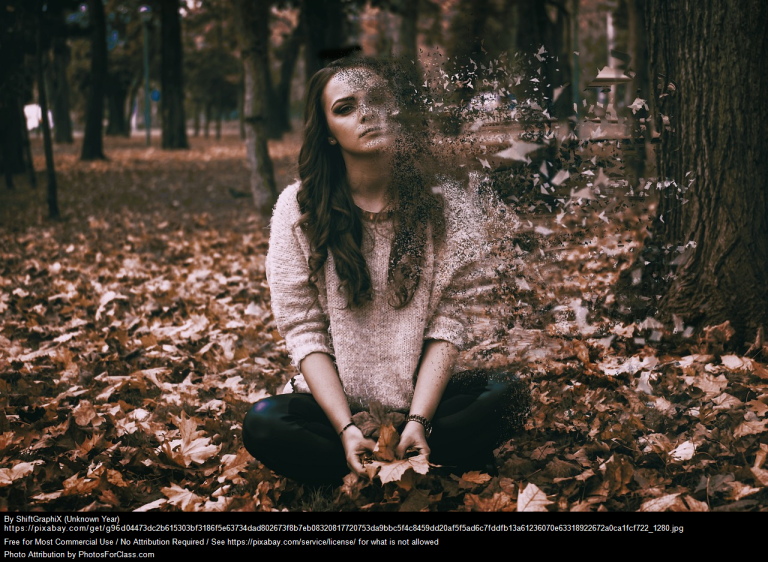How Flowers Can Improve Your Wellbeing
“People are like flowers. Some need only a little tending to, and who knows what kind of beautiful blooms may burst forth?”
Meredith Barron
Spring is the season when wherever you go, it is impossible not to see any flowers. From blossomed trees to snowdrops, hyacinths, tulips, primroses, and daffodils, they all make us stop for a moment when we pass by, take a deep breath, and smile. Just looking at the blossomed apple tree in front of my apartment makes me feel happier. Flowers make us feel happier and improve our well-being. This is one of the reasons why spring is the happiest season of all.
There were many studies proving the power of flowers over our happiness. Since the beginning of the COVID-19 pandemic, Google searches for “flower delivery” doubled. And Pinterest searches for “flower boxes” were up 408% year over year. In this article, I am going to explain the scientific reason why flowers make us smile and forget about our worries. They are not essential, but they’re emotional. They give us a small sliver of joy and provide solace to our souls.
Flowers’ effect on hormones for emotional well-being

Dopamine
Flowers release dopamine, which is part of our reward system and also known as the “pleasure hormone.” To trigger its release, our brains must expect a reward. It naturally occurs in our brains when we fulfill our cravings or when we accomplish something.
Historically, flowers were a sign that winter has ended, and an abundance of food will soon be available. Also, brightly colored fruits and plants were the richest food in nutrients for hunter-gatherers. Even though now food is abundant in all seasons, our DNA keeps the association between flowers and abundance that existed in hunter-gatherer times in a small corner of our neural paths inside the brain. And this releases dopamine.
Also, today, the main trigger of dopamine from flowers is the sense of something special. Bright and varied colors make us feel good, loved, and appreciated and get our attention. Receiving flowers is seen as a rewarding thing by our brains, so we feel special and appreciated. Which is a direct effect of dopamine production.
And the effect on our bodies is scientifically significant: our heart rate can drop by up to 7-10 bpm, as well as our blood pressure.
Oxytocin

The flowers’ fragrance induces to our brain the release of this chemical called oxytocin, also known as the “love hormone.” When our brains release this hormone, we feel trust, love, attachment, and solidarity. Basically, we feel all those feelings that are so hard to find and so easy to lose. This neurotransmitter also helps regulate mood and social behavior, appetite, digestion, sleep, etc. Lack of serotonin leads to depression and low mental health.
The reason why flowers stimulate oxytocin release is also the fact that flower gifts are thoughtful and make us feel appreciated. Serotonin is created in the moments when we feel needed, wanted, and loved. The effort invested in finding the perfect bouquet makes us feel in love and appreciate those around us more. And this is how flowers became a symbol of love and affection, and the perfect gift for anniversaries, weddings, Valentine’s Day, etc.
To release oxytocin through a flower gift, you can opt for strongly scented flowers such as roses or hyacinth or more delicate scents such as those of lavender and lily.
Another way through which flowers release oxytocin in our brain is through smiles. Flowers are nature’s way of smiling at us, and most often they also bound us to smile back. Happiness is usually a consequence of the choices we make, yet flowers are a fail-proof way through which nature leaves us no choice but to be happy every time we look at them.
Serotonin

Serotonin is the chemical used in all antidepressants. It can help us heal faster, feel inspired, and emotionally balanced. This hormone is essentially a mood stabilizer and helps us feel satisfied. This is the reason why flowers, regardless of whether we receive, give, or buy them, have the same effect. Flowers make us feel valuable, creating a sense of pride and social importance.
Most of our social rituals, from being polite with those around us to greetings and everyday good manners, exist to satisfy our urge for social acceptance in a healthy way. Flowers support those rituals with the serotonin release. And the rose is the most common flower used around the world to trigger this feeling.
The kind of pride serotonin makes us feel is related to our social status. It is the realization of “I did that”, “I accomplished something nice for myself/for someone”. These are all related to our place in the social hierarchy and how important we feel in the communities we interact with.
Mindfulness is another benefit of this hormone. The art of living in the present is a direct consequence of having flowers around us, as they are a reminder of the fragility of life and the necessity to care for those around us. Having any plant around us makes us more responsible and prompts a deep respect for the fragility of things.
Flower therapies’ effects on physical, emotional, and spiritual well-being
Aromatherapy

Aromatherapy is a holistic healing treatment that uses natural plant aromas to promote relaxation, health, and well-being. Producing essential oils is not an environmentally sustainable process. But flowers can produce therapeutic scents without having to be transformed into oils.
Flower fragrances help us sleep better, be less stressed, and have fewer migraines, and all those make us happier. All you need is to simply add a mildly fragrant flower in the corner of the room. It will calm you down and make it easier for you to fall asleep. This happens simply by cleaning the air in the room. Plants, including flowers, absorb toxins in the air, increase room humidity, and produce more oxygen while consuming carbon dioxide (through the process called photosynthesis). To trigger this effect and promote your body’s sleeping and relaxation capability, Jasmine, Gardenia, and lavender are some flowers you should purchase.
However, plants do not have only a calming effect. Biophilic designs are used in offices all around the world, as studies showed that plants in offices can increase our productivity by 15%, while also making us happier and healthier. Creativity is also boosted by up to 45% in the presence of flowers, together with our inner happiness and self-confidence.
Lastly, as Hippocrates, the father of medicine once said, “Nature itself is the best physician.” There is a reason why flowers are the most common gift we give when visiting someone in the hospital. Flower fragrances strengthen our immunity by making our bodies feel healthier and stronger.
Chromo-therapy

Chromo-therapy is the process of harnessing the power of flowers to enhance emotions and balance our physical, emotional, spiritual, and mental body energy. Through their bright and varied colors, flowers completely change the atmosphere and environment. Brightly colored flowers such as sunflowers, chrysanthemums, dahlias, and geraniums make us feel happy and cheerful. With those flowers around, we are more satisfied and have a better mood, which can also be contagious to others. While lighter shades of flower colors, such as those of hydrangeas, gypsophila, and lilies, make us feel more serene and calm, having a soothing effect.
For some tips regarding colors, you should consider pink for relaxation and calmness, yellow for happiness, warmth, confidence, clarity, and contentment, orange for joy, optimism, and wisdom, red for physical energy, confidence, and courage, purple for inspiration, creativity, and motivation, blue for mental clarity, creative expression, and aspiration, and green for calm, peace, balance, and harmony.
Regardless of their color, flowers bring positive emotions to those entering a room. They make us feel welcomed and create a sharing atmosphere. So you should consider having them around for an enhanced environmental wellbeing.
Flowers, Well-being, and Happiness in a Nutshell

Flowers are nature’s way of smiling and giving us the happiness that we so eagerly seek. They make us feel in love, ease our troubles and worries, help us trust others easier, improve our self-confidence and self-esteem, alleviate hopelessness, despair, and depression.
Flowers remove those negative emotions of envy, fear, guilt, and jealousy by nurturing positive emotions of love, tranquility, gratitude, empathy, joy, pride, calmness, and awe. They have a very strong and fast effect on emotional well-being through the hormonal changes promoted in our bodies, as well as through the fragrance and visual therapy they indirectly provide us with.
My advice would be to just go outside, find a flower shop, and buy a flower to nurture in your home. My choice would be lavender for its great smell, or tulips, my favorite flower because they signify perfect, unconditional, and deep love, whether it’s for your partner, children, parents, siblings, or yourself.
What is your favorite flower and why? Please share your thoughts and opinions in the comments below, and don’t forget to share the post with your friends and subscribe to the newsletter.
Love,
Cosmina
Views: 18








2 Comments